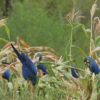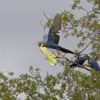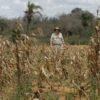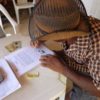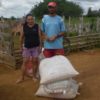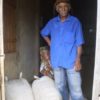Jeremoabo and Canudos, Brazil
Anodorhynchus leari
Death by farmer has become a very real threat to the survival of the highly endangered Lear's Macaw.
In 2006 the Lear’s Macaw was listed as “critically endangered”, the highest designation before “extinct”.
In early 2006 Parrots International partnered with the Lymington Foundation to initiate funding on a pilot program to reimburse the local indigent subsistence farmers in Canudos and Jeremoabo, Brazil, for damage to their crops from the marauding Lear's Macaws. Although 95% of the Lear's Macaw diet consists of the meat of the Lucuri Palm nut, the Lear's have also grown fond of the sweet corn from the fields of the local subsistence farmers within the macaws' habitat.
In April 2006 Parrots International partnered with the Lymington Foundation to purchase corn, in 60 kilogram sacks, and to dispense the corn as compensation to the local farmers based on the severity of the attacks on their plantations. The assessment and dispensing of corn was managed and supervised by Joaquim Neto, of CEMAVE, with the assistance of Monalyssa Comandaroba (whose salary was paid by ProAves, Brazil, during the pilot subsidy).
In the course of feeding on a farmers' corn crops, the Lear's Macaws will often break the ears off of the corn stalk, fly to an adjacent sentinel tree, and then begin to eat the ear, dropping and wasting more than they consume. For these farmers cultivation of any crop is a struggle, They grow only enough to feed their families and goats. They do not have the modern advantages of irrigation, nor fertilizer, nor farm tractors.
Therefore, the farmers see the Lear's Macaws as pests, taking food from the mouths of their children and family. The result is that “death by farmer” has become a very real threat to the Macaws....perhaps a greater threat than poaching and habitat loss.
We do not reimburse in cash, rather in corn or corn vouchers. Thus, the Lear's Macaw becomes an asset, rather than a liability to the farmer. The farmer can let the Macaws feed, knowing that he will be compensated. The farmer does not have to harvest the lost corn, nor process the corn and sack it. All the "work" is "done by the Macaws" and he is handed the subsidized compensation in nice clean sacks of corn at the end of the season. The idea is to create a win - win arrangement for both the farmers and the Macaws.
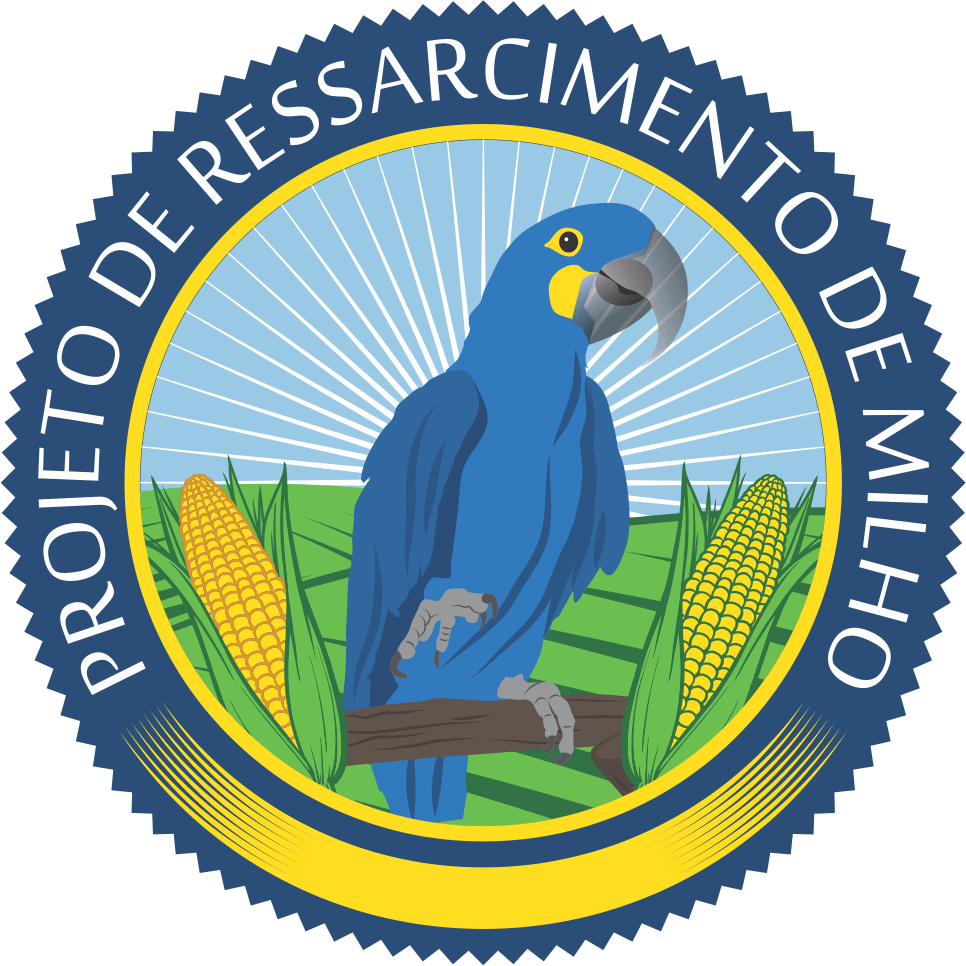 Over the ten years of the Corn Subsidy Project the Lear’s Macaw population has more than doubled to over 1300 individuals and has been delisted from “Critically Endangered” to “Endangered”!
Over the ten years of the Corn Subsidy Project the Lear’s Macaw population has more than doubled to over 1300 individuals and has been delisted from “Critically Endangered” to “Endangered”!
 Lear's Macaw portrait by M. Stafford
Lear's Macaw portrait by M. Stafford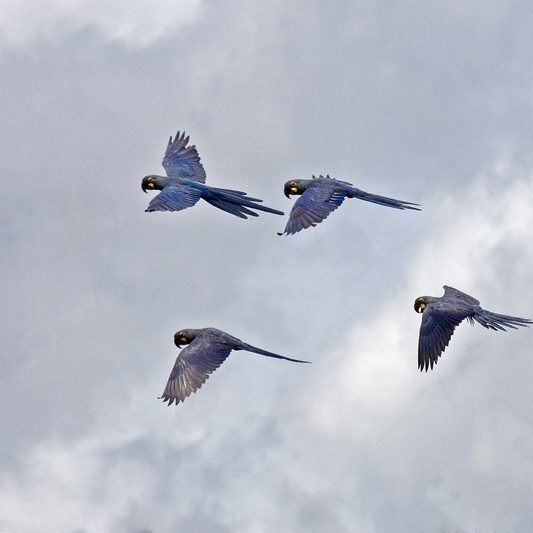 Lear's Macaws, Anodorhynchus leari, Jeromoabo, Brazil
Lear's Macaws, Anodorhynchus leari, Jeromoabo, Brazil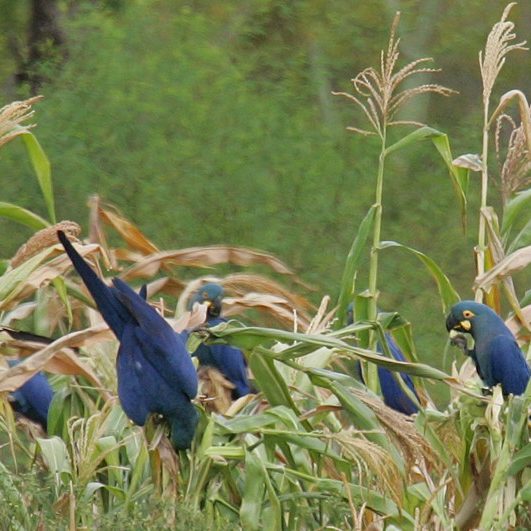 Lear's Macaws attack the corn fields of a subsistence farmer in Jeremoabo, Brazil
Lear's Macaws attack the corn fields of a subsistence farmer in Jeremoabo, Brazil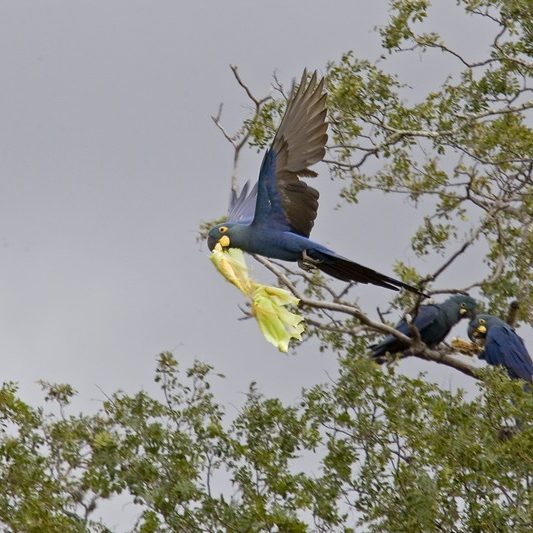 A Lear's Macaw takes his "catch" to an adjacent tree. His friend dines in the background.
A Lear's Macaw takes his "catch" to an adjacent tree. His friend dines in the background.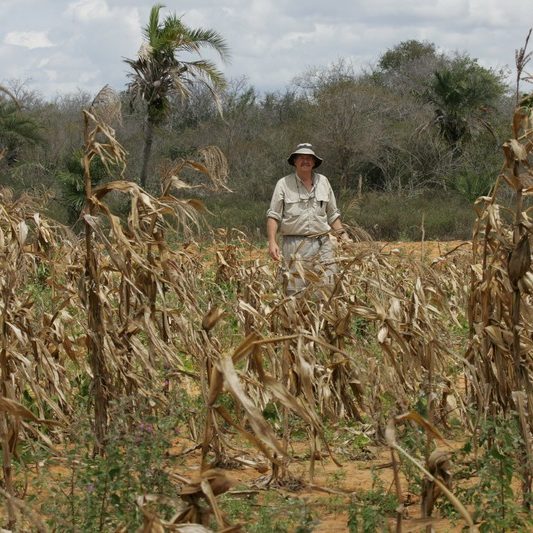 Mark Stafford, President of Parrots International inspects damage to a corn field from Lear's Macaws.
Mark Stafford, President of Parrots International inspects damage to a corn field from Lear's Macaws.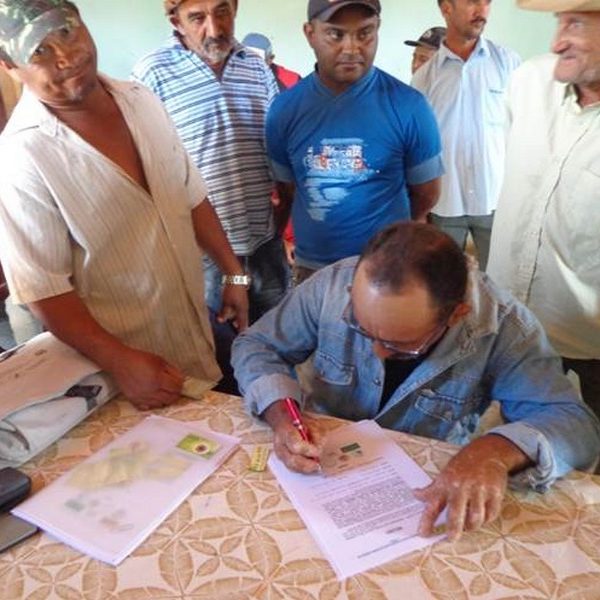 A subsistence farmer signs his contract to protect the Lears Macaw in exchange for compensation in the Lear's Macaw Corn Subsidy. Other farmers wait their turn to sign up with the program. Photo courtesy of Kilma Manso (ECO)
A subsistence farmer signs his contract to protect the Lears Macaw in exchange for compensation in the Lear's Macaw Corn Subsidy. Other farmers wait their turn to sign up with the program. Photo courtesy of Kilma Manso (ECO)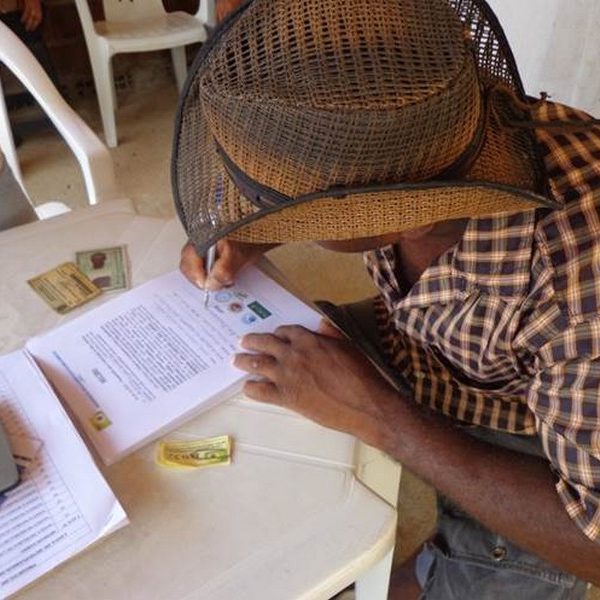 A subsistence farmer signs his contract to protect the Lears Macaw in exchange for compensation in the Lear's Macaw Corn Subsidy. Photo courtesy of Kilma Manso (ECO)
A subsistence farmer signs his contract to protect the Lears Macaw in exchange for compensation in the Lear's Macaw Corn Subsidy. Photo courtesy of Kilma Manso (ECO)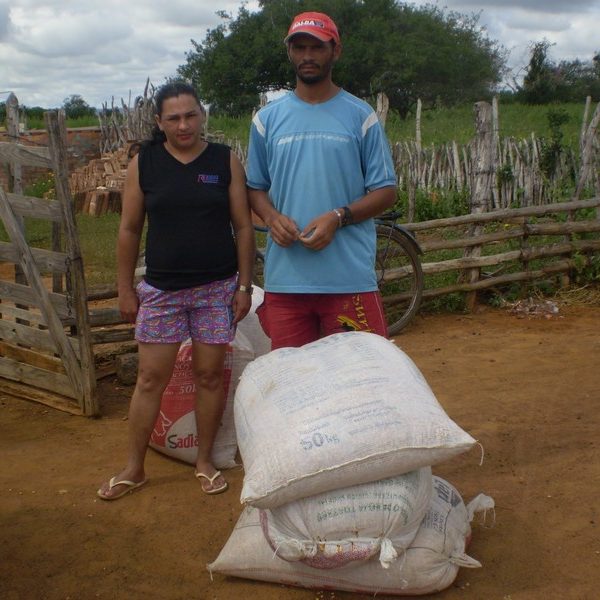 Subsistence farmers receive their corn subsidy in exchange for persecuting Lear's Macaws and letting them feed safely on their corn field. Photo courtesy of Kilma Manso (ECO)
Subsistence farmers receive their corn subsidy in exchange for persecuting Lear's Macaws and letting them feed safely on their corn field. Photo courtesy of Kilma Manso (ECO)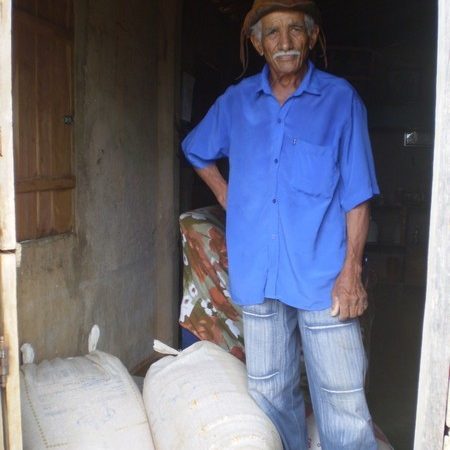 A subsistence farmer receives his corn subsidy in exchange for persecuting Lear's Macaws and letting them feed safely on his corn field. Photo courtesy of Kilma Manso (ECO)
A subsistence farmer receives his corn subsidy in exchange for persecuting Lear's Macaws and letting them feed safely on his corn field. Photo courtesy of Kilma Manso (ECO)
To date the partnership has funded the purchase and distribution of tons of corn annually in compensation for the damage caused by the Lear’s Macaws:
- 2006—20 tons
- 2006—15 tons (second growing season)
- 2008—12 tons
- 2008/09—20 tons (second growing season)
- 2010– 33 tons
- 2011—15 tons
- 2012 —13 tons
- 2013 —12.3tons
- 2014 —78 tons
Total as of 2014 = 218.3 tons = 436,600 pounds







